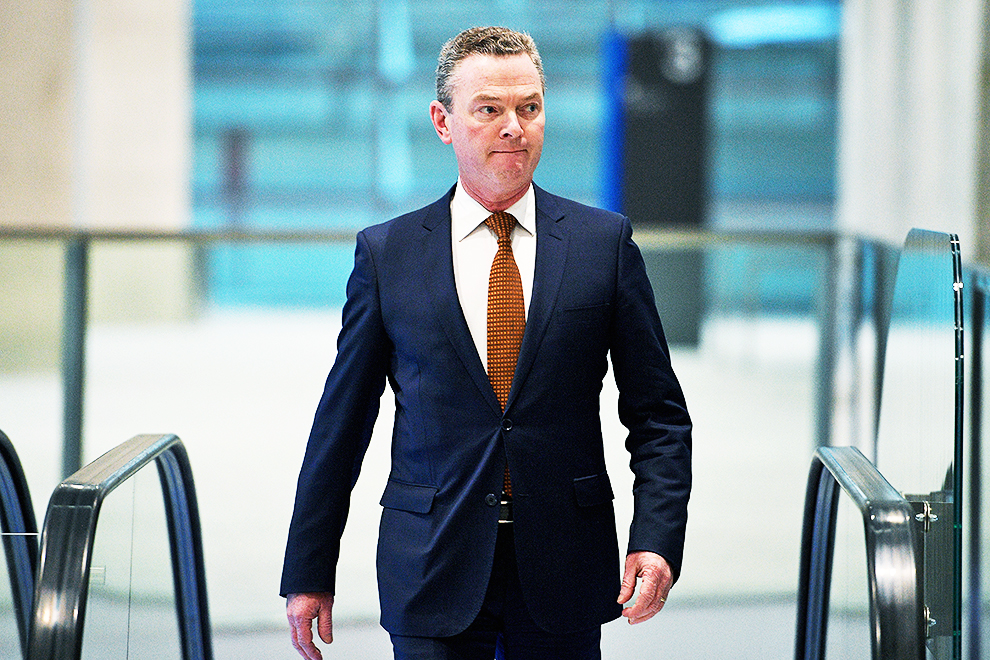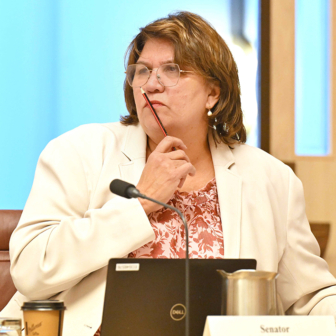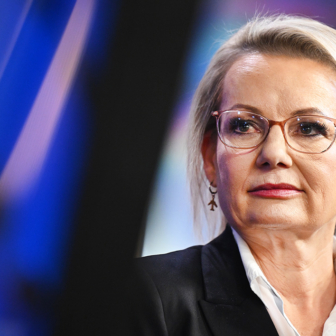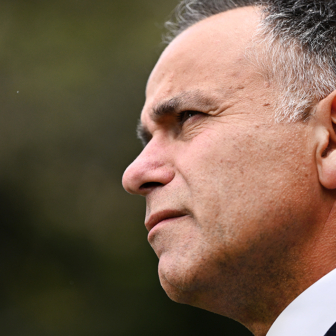Is there a war going on within the Liberal Party? Media coverage would suggest there is, but among those on the inside, opinions are very mixed. One veteran Liberal laughed when I put this to him, saying, “Look, it’s really all business as usual. But what is different right now is that what people say in private is now out there. Not a good look, but nothing much has changed. We have always had differences.” But a minister in the Turnbull government took precisely the opposite view. “Are we at war? You bet we are. And this will be very messy.”
At the centre of agitation is the former prime minister, Tony Abbott, who is maintaining a running critique of the government despite his “no sniping” pledge after he was dumped in a party-room revolt almost two years ago.
The key issue at stake centres on the interminable conundrum of the Liberal Party’s identity and the closely linked power struggle between moderates and conservatives, not at all helped by senior minister Christopher Pyne’s brash triumphalism about marriage equality and the moderates being “in the winner’s circle.”
Pyne – like Abbott, a polarising figure in both the party and the electorate – had already antagonised conservatives with his accusation that Catholic education authorities had been “dishonest” in their representations over the government’s school funding legislation. His leaked comments about marriage equality, seemingly at odds with the existing policy of taking the issue to a plebiscite, have elicited calls by conservatives for him to be dumped from the ministry and sacked as Leader of the House. Arch-conservative senator Eric Abetz hinted at preselection ramifications for Liberals who were diverging from the policy taken to the election last year.
It is in the preselection arena that the next phase of the war might soon erupt. Tony Abbott, who has flagged his intention to remain in parliament, will most likely face a challenge in his safe Sydney seat of Warringah. While he is thought to have a slight numerical advantage at present, continuing dismay over his attacks on the government and the destabilisation it is creating might quickly erode those numbers, just as it has diminished his core support within the parliamentary party.
“When he starts continuing to sort of perform on a national stage then of course this is very very damaging to the government,” observed one federal backbencher, Warren Entsch, echoing the views of many of his colleagues. “If he can’t contain his comments to issues relating to his electorate – which is what is expected of all of us backbenchers – if he can’t do that and if he feels he just wants to continue to criticise the government and its performance and the prime minister then really he is not making any positive contribution at all.”
A prominent NSW moderate confirmed that a challenge was being planned and that Abbott “will be in for a surprise.” Liberal moderates are buoyed by the successive defeats of close Abbott ally Walter Villatora in preselection contests, first for Bronwyn Bishop’s neighbouring seat of Mackellar and then for the state seat of Manly, vacated by former premier Mike Baird.
If Abbott faces defeat, it will create a dilemma for the prime minister, despite his undoubted desire to be rid of his predecessor. Tradition would demand that he intervene to save a former party leader, but to do that would place his own authority on the line – and he has already been burnt once when, as opposition leader in 2009, he failed to secure Peter Dutton’s attempted preselection for a safer seat in Queensland.
Liberal leaders in the past have been damaged, sometimes terminally, when they have been rebuffed by local party branches. Among the best-known examples are Andrew Peacock’s attempt to save his political ally Ian Macphee in Victoria in the late 1980s and John Hewson’s inability to save Wal Fife in the early 1990s.
Another NSW moderate, a fierce opponent of Abbott, told me he believed the former prime minister was angling to be appointed governor-general as the price of his exit – a move already mooted by conservative columnist Miranda Devine in the Daily Telegraph. “He hasn’t had any job offers, and not for want of trying,” said this moderate. “He would kill for this gig, and knows Turnbull is biddable. It makes sense.”
It would be a most cynical bargain if it ever came off, and Devine’s comparison with Bob Hawke’s elevation of the man he deposed, Bill Hayden, is a poor one. Abbott is a most divisive figure not at all suited to a post in which he would have to reach out to all Australians. Hayden attracted a high degree of public sympathy after being replaced on the eve of an election that he memorably characterised as being winnable by “a drover’s dog.”
In addition, Hayden, who served with distinction under Hawke as foreign minister, was exemplary in his behaviour, both in public and private, towards the man who took his job, whatever his personal feelings might have been.
No former prime minister has ever become governor-general, and it would be an unwelcome precedent for that job to be treated as both a soft landing and a consolation prize that can be had as the price of silence. Abbott is simply not in the class of former politicians who have ended up at Yarralumla, including Isaac Isaacs, William McKell, Paul Hasluck and Hayden.
Another matter clouding the Abbott issue is the NSW state election in March 2019, most likely after a federal election late next year. The state government, along with the state economy, is the best performing in the country and, as such, is the current jewel in the Liberal crown. The last thing the party needs is for a civil war to spill over into the state arena and jeopardise the Berejiklian government’s re-election prospects.
With the Turnbull government looking dismal in the polls and the possibility that the Liberal government in Tasmania could be defeated next year, that might well be the only asset the party has to defend – and Tony Abbott just might be sacrificed in that defence. •




